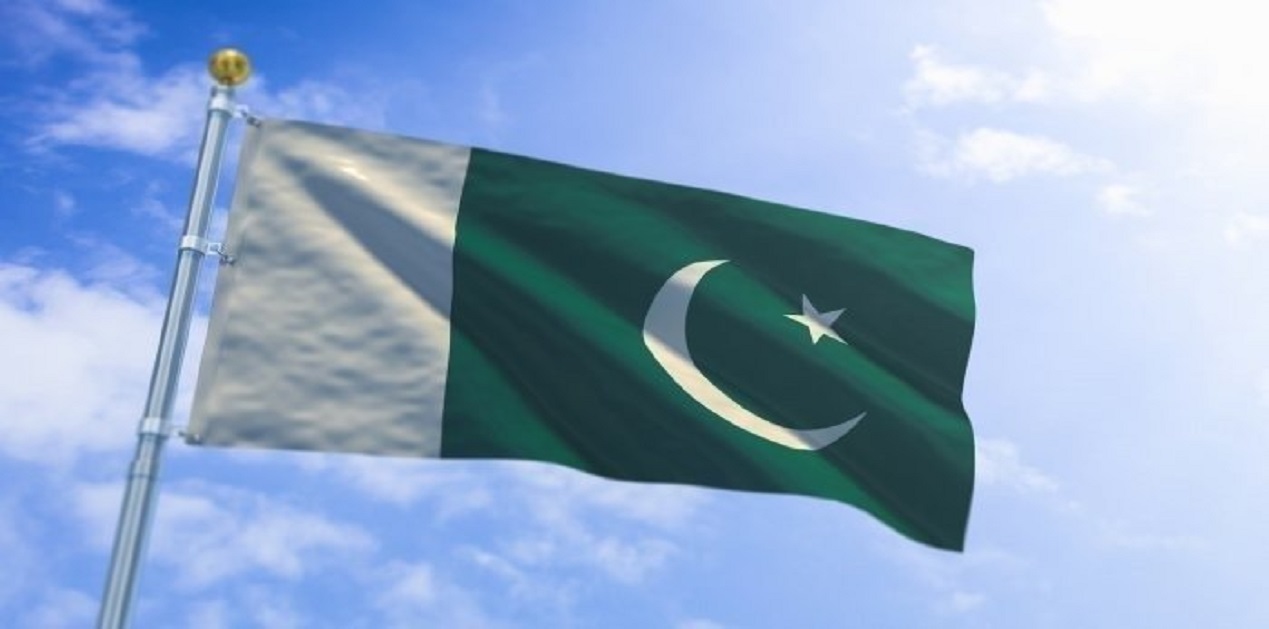“Plus ça change, plus c'est la même chose” which means, the more things change, the more they stay the same. The quote poignantly underscores the precarious situation of Pakistan, as it teeters from one to crisis to another. Every year the troubles keep mounting and headwinds of instability no show sign of abating. 2021 proved to be yet another challenging year for the country. While the Covid-19 crisis loomed in the background, Pakistan was embroiled up by multiple controversies. Internal fault lines, governance failure, rise of extremism and economic distress are some of the factors that brought instability to the country.
Economy showed no signs of recovery and was in dire straits. Though in the beginning of the year a rosy narrative of economy was presented, the ground reality remained grim. Almost on all the economic indicators, Pakistan’s performance was poor. There was double digit inflation, widening trade deficit, currency devaluation, price rise and an unsustainable debt. The numbers are telling. Towards the end of year the annual inflation rate in Pakistan increased from 8.4 percent (July-May) to an all-time high of 11.5 per cent in the month of November 2021[1]. Pakistan’s external debt and liabilities surpassed PKR 50.5 trillion[2]. Pakistani rupee saw downfall and plunged to Rs 176 to the US dollar. Food prices surged and went to an all time high, which further direly affected the masses. Further, the sixth review of the International Monetary Fund (IMF) for the USD 6 billion extended fund facility (EFF) programme was postponed as the differences between IMF and Pakistan remained intact.
While economic crisis continued to be in headlines, Pakistan saw contentious developments on the internal front. The year saw political and violent rise of Tehreek-e-Labbaik Pakistan (TLP), a far-right religious political party. TLP has been staging violent anti-state protests demanding the expulsion of the French Ambassador from Pakistan on account of blasphemy. The protests have led to chaos and anarchy in Pakistan, as TLP has been successful in mobilizing thousands of supporters. However it was surprising to see that the Imran Khan government gave in to the demands of TLP while negotiating with the marchers for releasing the jailed leaders of the proscribed religious-political group, lifting the ban and allowing it to participate in politics[3].
Another important factor that emerged during the year was the civil-military relations becoming tensed. Army has been upset with Imran Khan for crossing the red lines. The differences between Imran Khan and the Chief of army staff were evident over the appointment of director general of Inter-Services Intelligence (ISI)[4]. The controversy has jolted the cozy relationship that the establishment and government shared and they are clearly are not on the “same page”. Further opposition also slammed Imran Khan for the ill handling of economy and poor governance.
On the external front there were striking developments. USA’s hasty troop withdrawal from Afghanistan and the subsequent Taliban takeover in Kabul sent shockwaves throughout the world. In Pakistan a sense of triumphalism prevailed as it achieved its cherished goal of ‘strategic depth’ in Afghanistan with a Pakistan-friendly government in Kabul. Though this had repercussions as Pakistan relations with USA went on a downward spiral. Imran Khan was upset over not receiving a phone call from US President Joe Biden. Amidst the changing geopolitical and regional dynamics, Pakistan’s relations with its close allies- Saudi Arabia and the United Arab Emirates continued to be strained. Though it tried to mend the ties with Saudi Arabia and tapped $3 billion loan, there was no significant breakthrough in the relations. China Pakistan nexus was intact, as on the high tables the dialogue continued between the iron brothers. However, there were concerns in China over the intensifying attacks on the Chinese projects. Further there was not much progress on the China Pakistan Economic Corridor (CPEC). In fact there has been a significant backlash in Pakistan against the CPEC as anti-state and anti-China protests are getting traction in Gwadar the centerpiece of the project[5].
As far as India Pakistan relations are concerned the last year began with a surprise development as the Directors General of Military Operations (DGMOs) of India and Pakistan recommitting them to the 2003 ceasefire agreement. But the movement in bilateral relations remains constrained as Pakistan continued its anti-India tirade and there was no strategic shift in its policy. It remains stuck on the Kashmir issue vis-à-vis normalization of relations with India. On the whole Pakistan struggled on the foreign policy front.
The ruling government needs to brace itself for the serious challenges that lie ahead in the year 2022. Uncertainty prevails over the future of Imran Khan’s tenure. A range of issues has piled up against the Pakistan Tehreek-e- Insaaf (PTI) government, which includes the foreign funding case and the financial crisis. Civil-military relations have fractured. Opposition is up in arms against Imran Khan as Pakistan democratic movement’s (PDM) long march is scheduled to take place on March 23, 2022[6]. Economically the country is hurtling towards a collapse. With the economic parameters on the downslide and the pandemic still adversely impacting the economy, it is highly unlikely that Pakistan will able to tackle its long-term structural problems. Another concerning factor for Pakistan is the religious and extremist factions gaining a strong foothold in the country. The enigmatic rise of TLP will pose a big threat to the internal security of Pakistan. Externally, the uncertain situation in Afghanistan and the worsening humanitarian crisis will have direct bearing on Pakistan. The resurgence of Tehrik-i-Taliban (TTP) in Pakistan and its sanctuaries across the border in Afghanistan remain a security threat. Further Financial Action Task Force (FATF) sword still hangs on Pakistan as it continues to remain on its grey list. Considering its failure to prosecute senior leaders and commanders of UN designated terrorist groups, it is likely to languish on the grey list.
Pakistan is in big churn. It remains vulnerable to internal and external shocks. 2022 has begun with Pakistan launching the public version of the country’s first-ever National Security Policy (NSP) document[7]. The focus of the policy is on Economic security with “geo-economics” as the buzzword. However, the document is nothing but an exercise in image building, as there is no paradigm shift in Pakistan’s national objectives. It is pertinent to note that the NSP comes at a critical point when Pakistan needs a revised narrative to counter its negative image abroad. The question that hovers is will policymakers be able to translate the policy statements into action? With uncertainties looming large Pakistan needs to contemplate on innumerable issues that haunt the nation. For embattled and beleaguered Pakistan the future is bleak.
References
[1]https://www.aninews.in/news/world/asia/pakistans-november-inflation-hits-115-pc-highest-in-20-months20211201111500/
[2]https://economictimes.indiatimes.com/news/international/business/in-a-first-pakistans-debt-liabilities-cross-pkr-50-trillion/articleshow/87917433.cms?from=mdr
[3]https://www.bloomberg.com/news/articles/2021-11-08/pakistan-lifts-ban-on-radical-group-to-help-end-deadly-protests
[4]https://indianexpress.com/article/explained/isi-chief-change-nadeem-anjum-implications-imran-khan-pakistan-army-7600213/
[5]https://www.tribuneindia.com/news/comment/pak-security-policy-faces-strategic-challenges-363304
[6]https://tribune.com.pk/story/2332710/pdm-decides-to-march-on-islamabad-on-march-23
[7]https://www.dawn.com/news/1669384
(The paper is the author’s individual scholastic articulation. The author certifies that the article/paper is original in content, unpublished and it has not been submitted for publication/web upload elsewhere, and that the facts and figures quoted are duly referenced, as needed, and are believed to be correct). (The paper does not necessarily represent the organisational stance... More >>
Image Source: https://www.deccanherald.com/sites/dh/files/styles/article_detail/public/articleimages/2022/01/10/clipboard-78-1068980-1641572609-1069705-1641789825.jpg?itok=FtGOsFQH










Post new comment